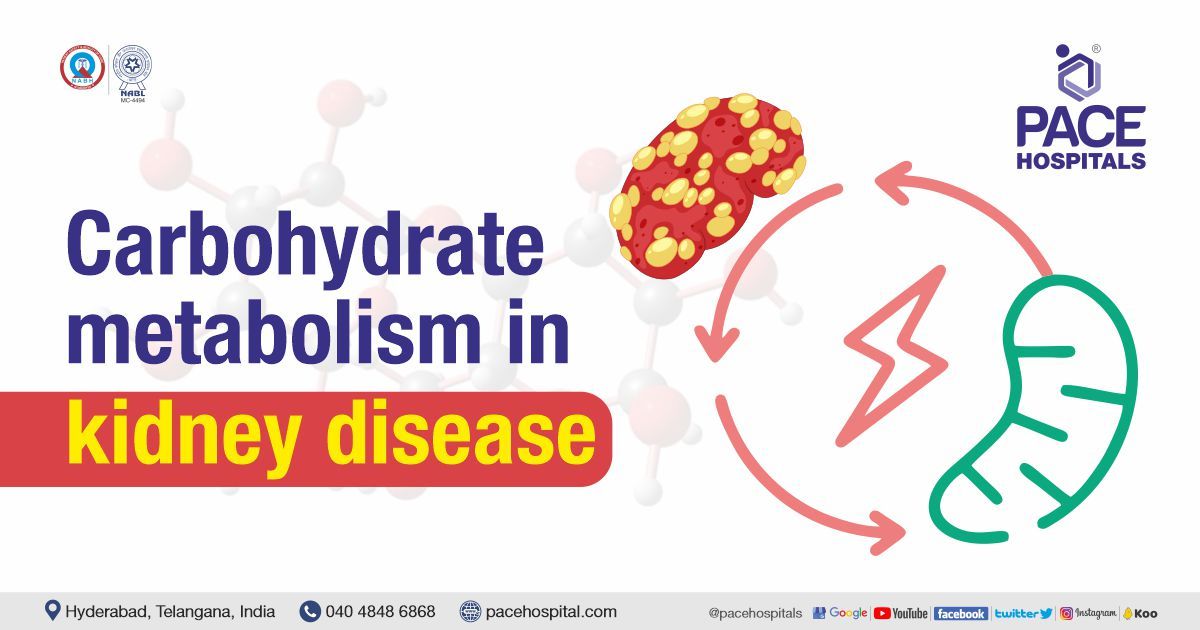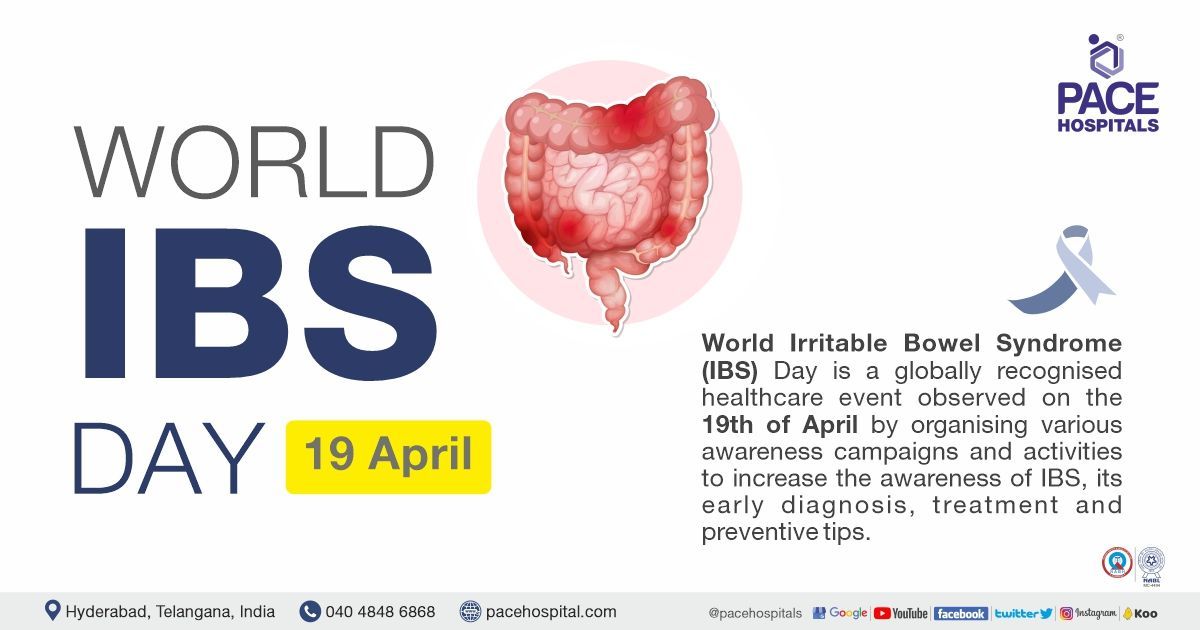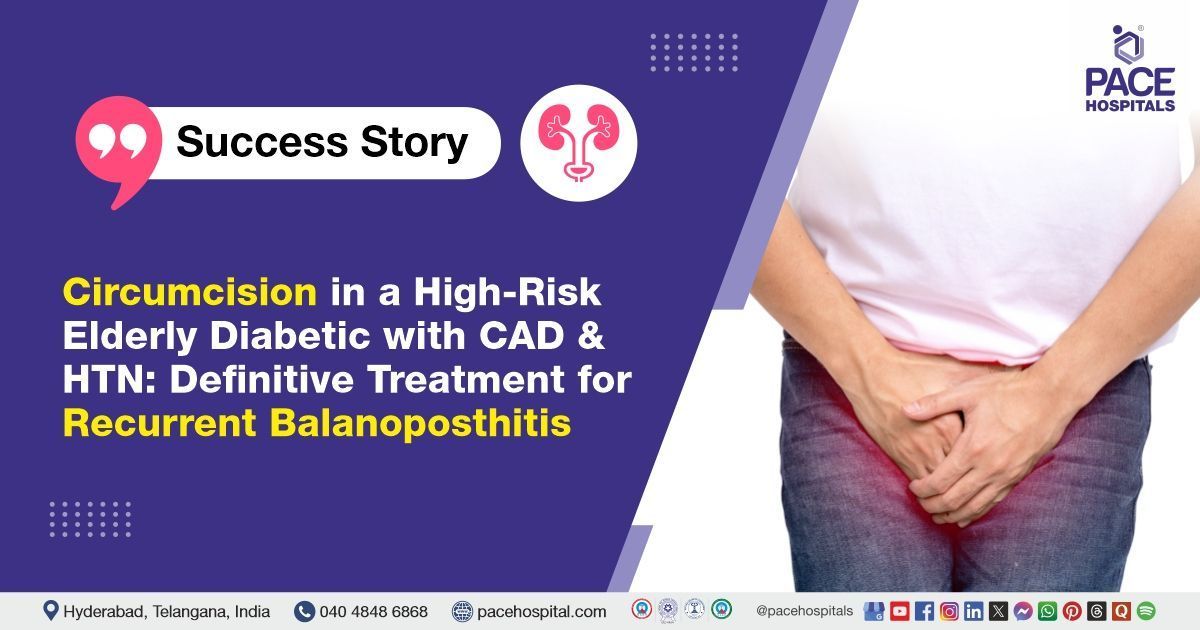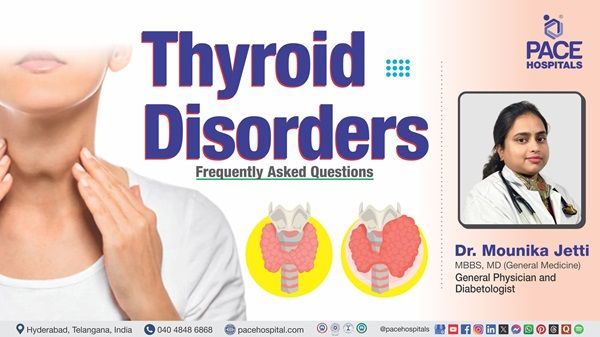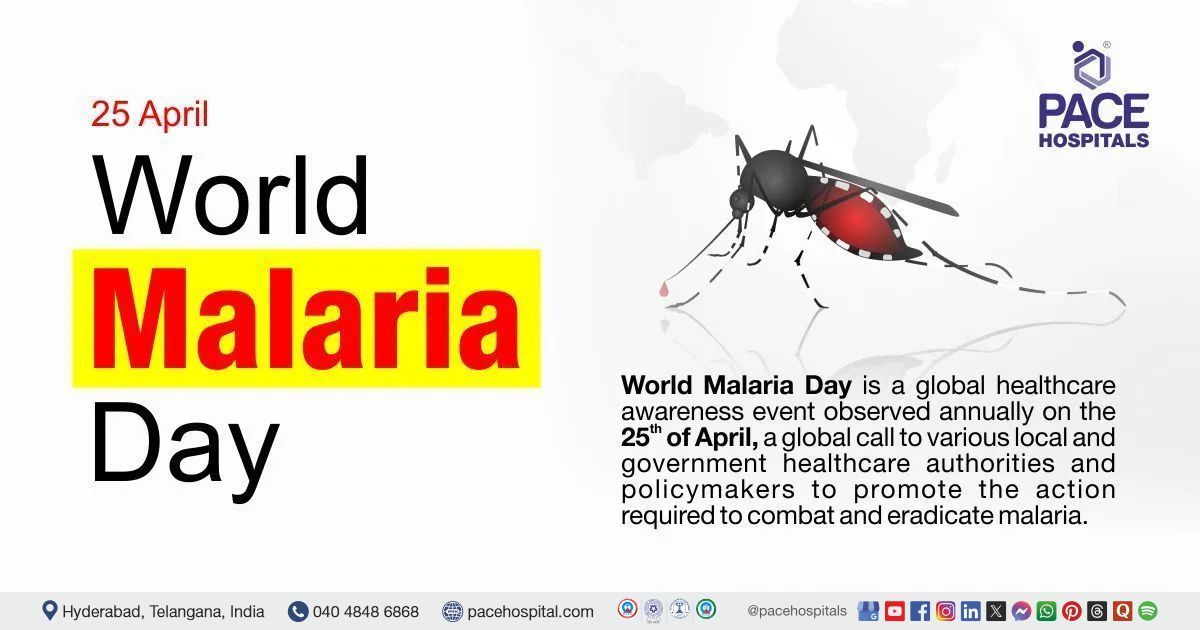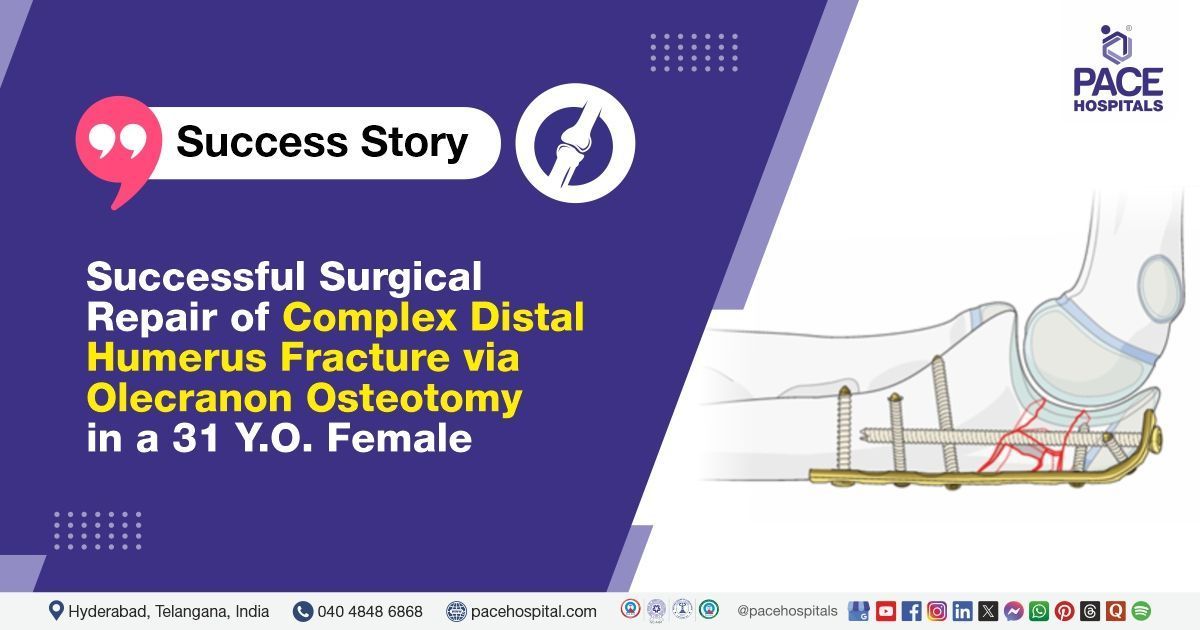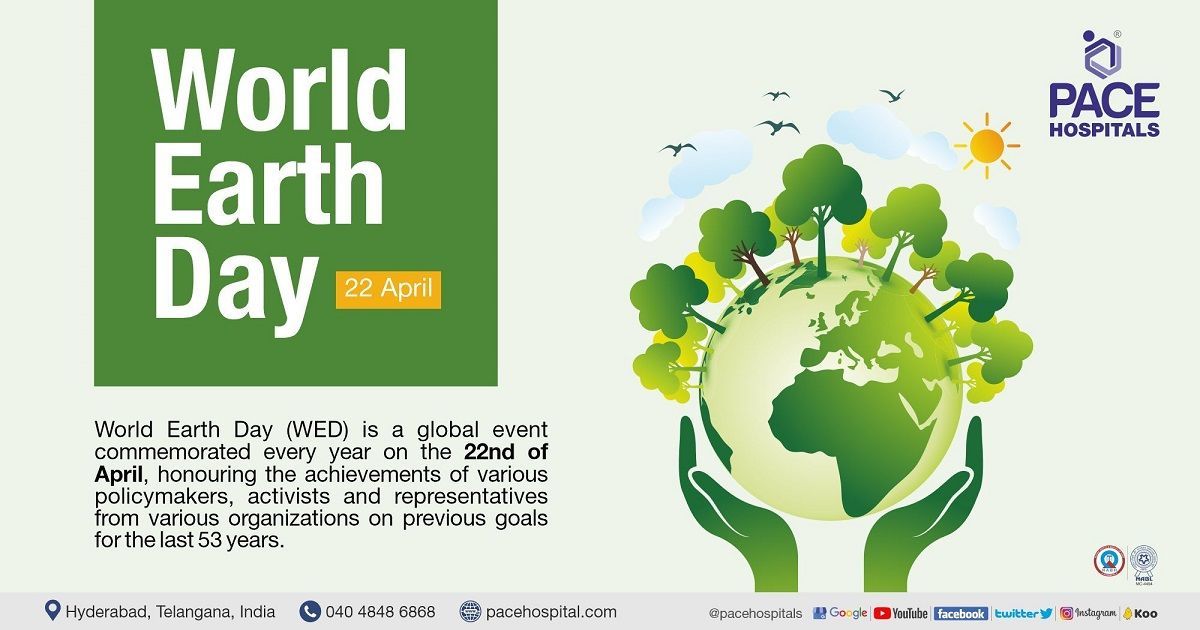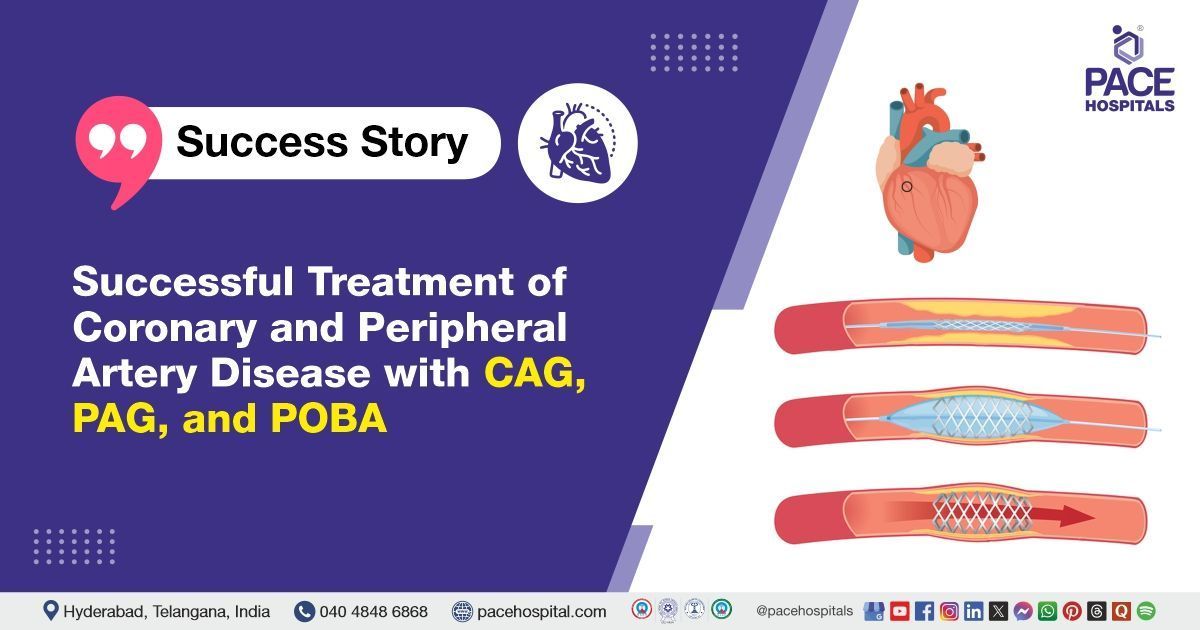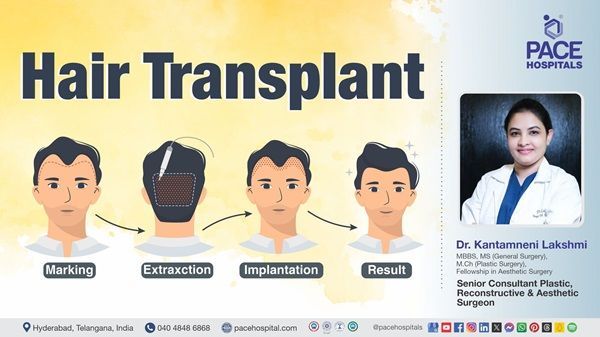Carbohydrate metabolism in kidney disease - CKD
In a normal person, whenever food is consumed, complex carbohydrates are broken down and absorbed in the intestines. This leads to rise in blood glucose levels.
Glucose stimulates the release of insulin from the pancreas (situated in the abdomen). The insulin which is released causes uptake of glucose from blood into muscle and liver (major sites for glucose uptake in the body). Insulin also has many other effects in protein and fat metabolism.
In patients with chronic kidney disease (CKD) carbohydrate metabolism is affected at various levels of insulin and glucose interaction leading to glucose intolerance (higher than normal blood sugar levels). Important abnormalities seen in CKD patients are insulin resistance, defect in insulin secretion, defect in insulin clearance and hypoglycemia.
Insulin resistance in chronic kidney disease
Insulin resistance means there is impaired response to the action of insulin in the body. Because of resistance to insulin action, higher insulin levels (hyperinsulinemia) are seen in the blood as the body tries to maintain glucose levels in the normal range.
Even in nondiabetic patients with advanced CKD, higher blood glucose levels and insulin levels are seen. Insulin resistance is seen in 24% to 32% of advanced CKD patients, and it is more common in patients on dialysis.
Liver and kidney are the major sites of glucose production in the body in the fasting state. Liver and muscle are the major sites of glucose uptake by action of insulin. In CKD patients liver glucose uptake is not affected, but muscle uptake of glucose is affected because of resistance to insulin action.
Reasons for insulin resistance in CKD patients are:
- Accumulation of nitrogenous waste products (uremia) in blood in CKD patients can interfere with action of insulin
- Increased visceral fat and sedentary lifestyle
- Rise in blood levels of hormones like glucagon and growth hormone, which antagonize the action of insulin
- Acid accumulation in the body due to kidney dysfunction
- Excess activation of immune system (inflammation) and low hemoglobin levels (anemia) can also cause insulin resistance
Insulin resistance can cause negative effects on the body. It can lead to worsening of kidney function, increases the risk of heart disease and brain stroke. Insulin resistance worsens hypertension and increases fat content in the blood (high triglyceride levels). It also stimulates the breakdown of muscle protein, leading to muscle loss.
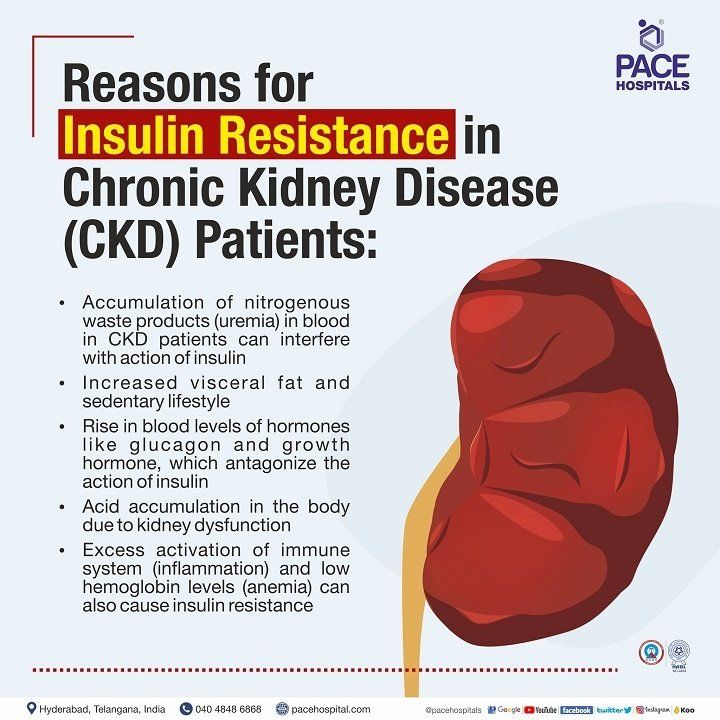
Insulin secretion defect in chronic kidney disease
Insulin is released into the blood from the pancreas. Pancreas is an organ in the abdomen which is located behind the intestines. Pancreases releases insulin into the blood in response to various stimuli (glucose, amino acids, hormone etc.) most important of which is rise in glucose levels in the blood.
Insulin secretion is defective in patients with CKD because of following reasons:
- High levels of parathormone (PTH) in the blood which is usually seen in CKD patients inhibits insulin secretion
- Low vitamin D levels also lead to defective insulin secretion
Defect in insulin clearance
In normal people, insulin in the blood gets filtered via a filtering membrane in the kidneys and is taken up by tubules in the kidney where it is degraded. Kidneys account for 25% - 40% of removal of insulin in the body.
When kidney function declines (GFR less than 40 mL/min) insulin clearance by kidneys decreases and insulin stays for longer duration in the blood than usual. There is also decrease in clearance of insulin by liver and muscle in CKD patients. This is the reason for reduced requirement of insulin in diabetic patients with kidney dysfunction.
Hypoglycemia (very low blood sugar levels) in chronic kidney disease
Hypoglycemia is dangerous. It can lead to seizures, coma, heart rate abnormalities or stroke. CKD patients both with diabetes and without diabetes are at risk of hypoglycemia. Kidneys along with liver are the important sources of glucose production (gluconeogenesis) in the body during fasting state. Kidneys contribute to up to 40% of gluconeogenesis.
Reasons for hypoglycemia in CKD patients are:
- Decreased kidney function leads to less production of glucose by kidneys
- Malnutrition
- Defective degradation of insulin leads to its high levels, which can cause low glucose levels
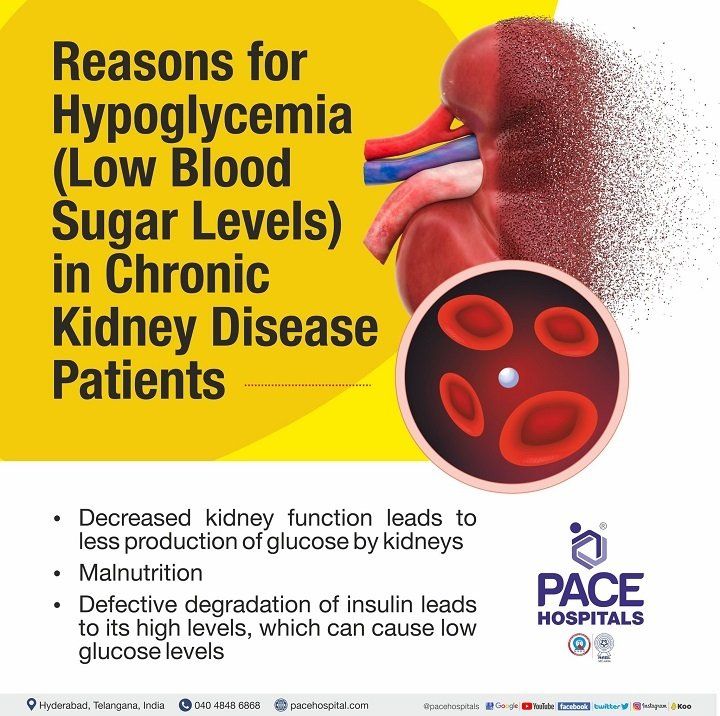
As described above, kidney dysfunction can affect the carbohydrate metabolism in the body in variety of ways and can lead to impaired glucose tolerance, insulin resistance, high insulin levels and hypoglycemia. These changes also have impact on treatment of patients.
For example, diabetic patients with CKD are given lesser doses of insulin than those without CKD because CKD patients are at high risk of hypoglycemia with high insulin doses. Many diabetic oral medications given is non-CKD patients are not preferred in CKD patients because of increased risk of hypoglycemia.
Related article
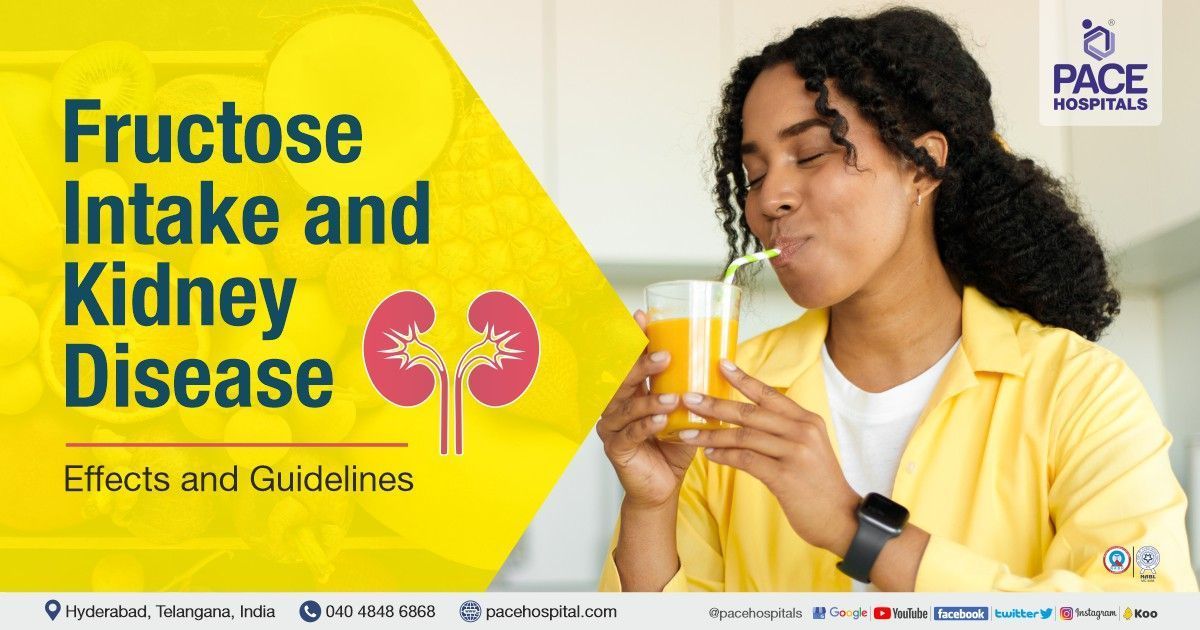
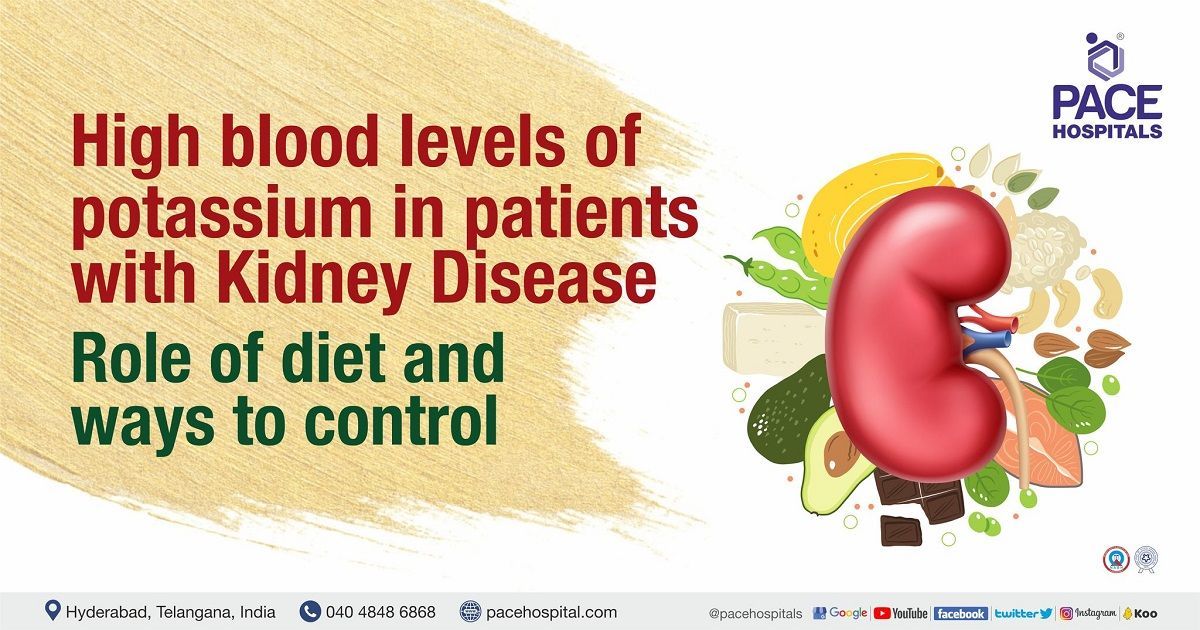
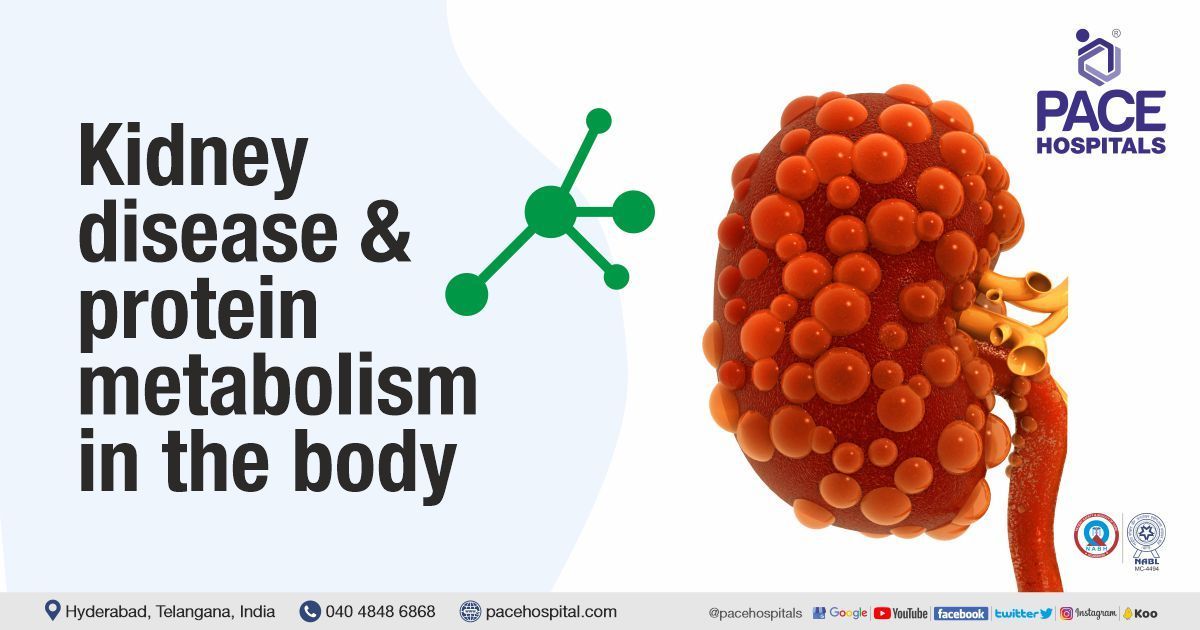
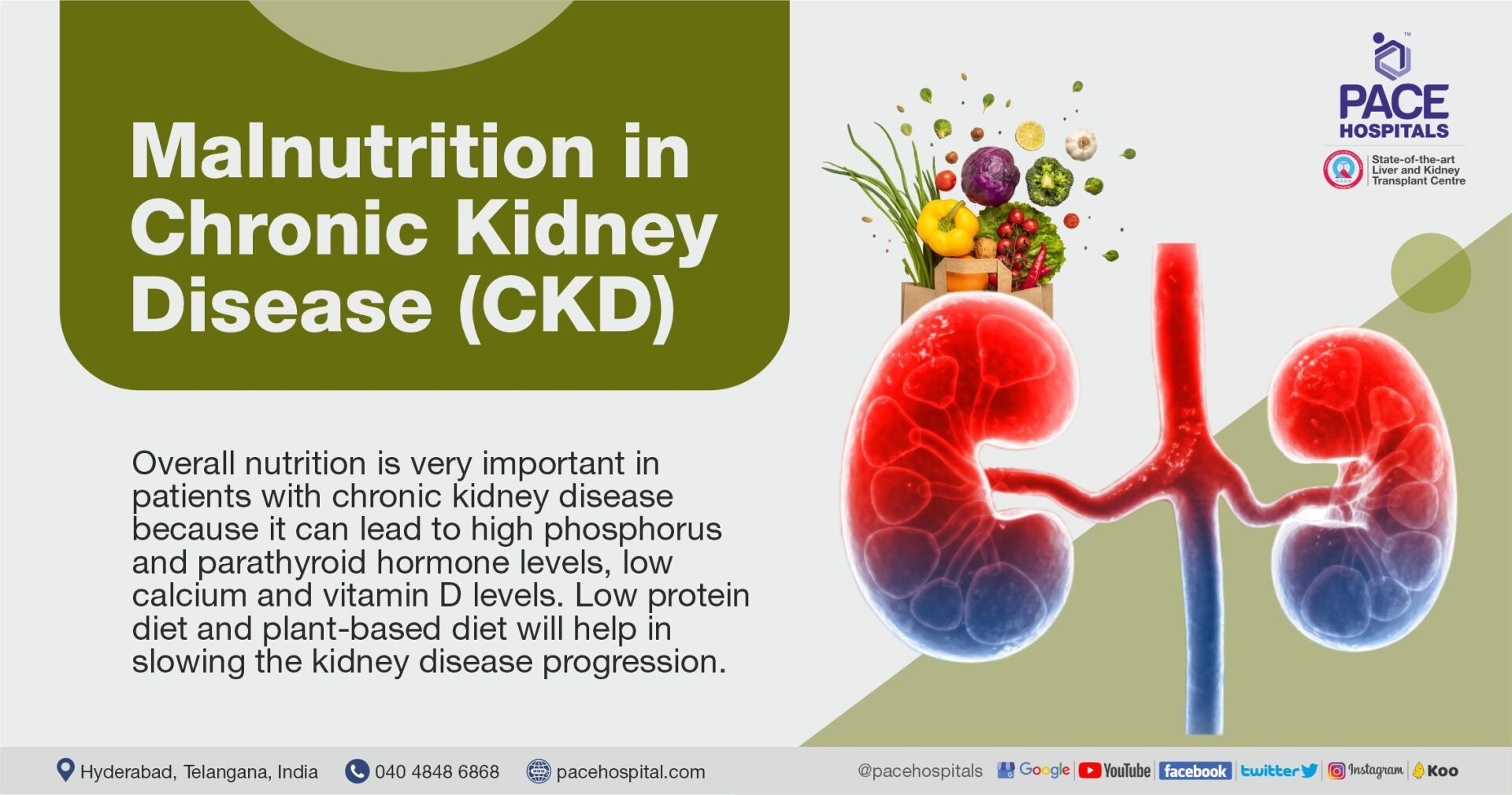
Share on
Request an appointment
Fill in the appointment form or call us instantly to book a confirmed appointment with our super specialist at 04048486868

